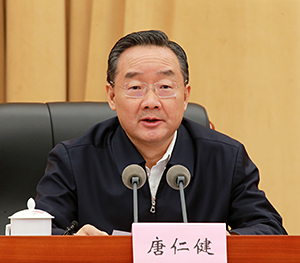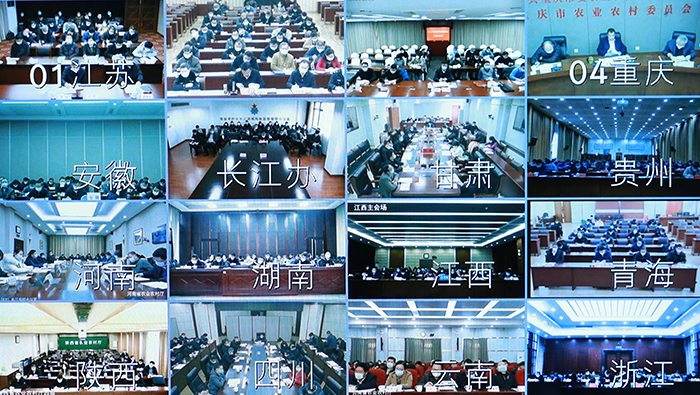
A meeting on further implementation of the 10-year fishing ban on the Yangtze River was held via video link in Beijing on Feb. 2. Tang Renjian, Chinese Minister of Agriculture and Rural Affairs, attended the meeting and delivered a speech. He emphasized that the 10-year fishing ban is a long-term, complex and arduous task, and the overall purpose to sustainably restore the ecology of the Yangtze River basin shall be taken into account. In order to successfully implement the ban in the current phase, work should be continuously done to relocate and compensate the fishermen affected by the ban, enforce fishing-ban-related measures, and protect the aquatic life.
 Minister Tang pointed out that phased results have been achieved since the official implementation of the ban two years ago. For example, the ban has been generally well-observed; measures on fishermen’s relocation and compensation have been generally effective; and restoration of aquatic life and resources has shown a positive trend. However, new situations and problems have emerged. Tang made the following three proposals:
Minister Tang pointed out that phased results have been achieved since the official implementation of the ban two years ago. For example, the ban has been generally well-observed; measures on fishermen’s relocation and compensation have been generally effective; and restoration of aquatic life and resources has shown a positive trend. However, new situations and problems have emerged. Tang made the following three proposals:
First, offer advice and assistance to the affected fishermen on finding jobs and include them in a dynamic monitoring and assistance mechanism to prevent poverty relapse. Second, further enhance law enforcement capacity along the Yangtze River and make it a top priority. Keep a close watch on key waters such as those at the Yangtze River estuary, interprovincial borders and aquatic life protection areas, so as to prevent illegal fishing from re-emerging. Third, make more efforts to conserve the aquatic life and have a whole picture of the fish stock in the Yangtze River, so as to implement targeted protection measures.
Ma Youxiang, Vice Minister of Agriculture and Rural Affairs, presided over the meeting. Li Zhong, Vice Minister of Human Resources and Social Security, Xu Xinjian, Chief Inspector of Anti-monopoly of the State Administration for Market Regulation, and Qiu Baoli, Director General of the Public Order Bureau of the Ministry of Public Security, made work arrangements. Wei Baigang, Chief Economist of the Ministry of Agriculture and Rural Affairs (MARA), and representatives from the Coordination Mechanism for Implementation of the Yangtze River Fishing Ban attended the meeting at the main venue. Heads of the agriculture and rural affairs authorities from Jiangsu, Hubei, Shanghai and Chongqing made speeches. Additional meeting venues were set up in 15 provinces and provincial-level municipalities along the Yangtze River.
